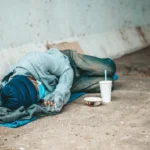
Generational Poverty
The self-reinforcing mechanisms that keep people in poverty once it has set in are the root cause of the cycle of poverty.
Generational poverty is a very real and dismal situation especially in developing countries. In most of the situations across the globe, poor families don’t have the resources, education and other means to escape from poverty which means getting entrapped in this vicious cycle.
Parents who have a good understanding of what their children need to thrive in school and in life often lack the resources to provide it for them. This includes things like money for school supplies and activities, health care, transportation, a stable home environment, adequate clothing, and a healthy diet. This goes on for generations due to lack of information and knowledge.
Generational Poverty through Debts
Another extremely significant way in which poverty can be perpetuated through generations is through debts.
A lot of poor families end up getting involved in illegal debt collection practices in the hopes of zero interest. The burden of debt repayment and harassment can seep through generations.
The cycle of poverty perpetuates itself, making the current state of poverty a primary contributor to further poverty in the future.
Factors Influencing Generational Poverty
One striking implication of the generational poverty cycle is that much poverty is passed on and aggravated due to lack of special skills. Prolonged problems include a lack of capital, subpar medical facilities, restricted access to credit, a sluggish educational system, shoddy infrastructure, and natural disasters make the situation much more dismal!
In India, casteism is a major contributing factor towards poverty, especially in rural locations where members of the disadvantaged castes do not have the same opportunities and are often shunned away by key figures of the society.
Another way through which poverty can truly shackle generation after generation is through broken families. A large percentage of poor families are broken with added societal issues like – drug addiction, mental health problems etc. All of these greatly impact the children of the family.
A child’s early years greatly determine their adulthood. It affects them deeply – mentally and physically. A child will suffer the same fate as their caretaker if the caretaker is living below the poverty line. The psychological scars of childhood poverty are so deep and pervasive that they follow a person into adulthood which again makes it nearly impossible for them to break the cycle of generational poverty.
